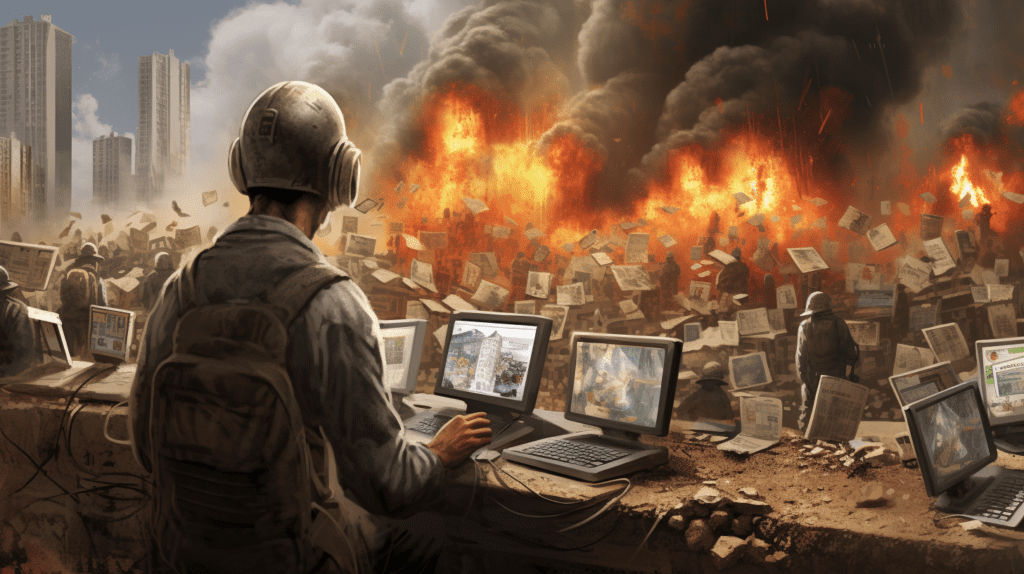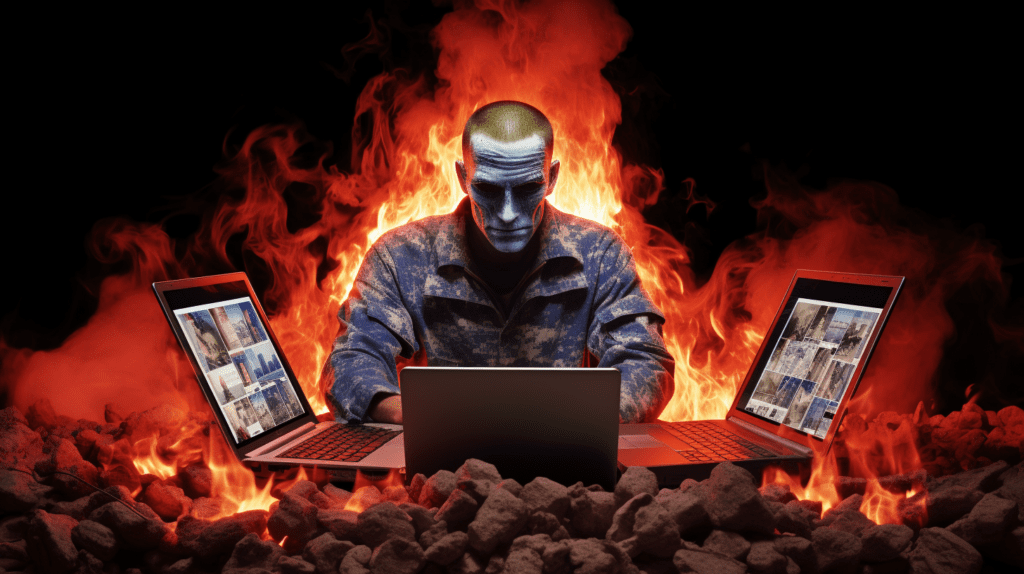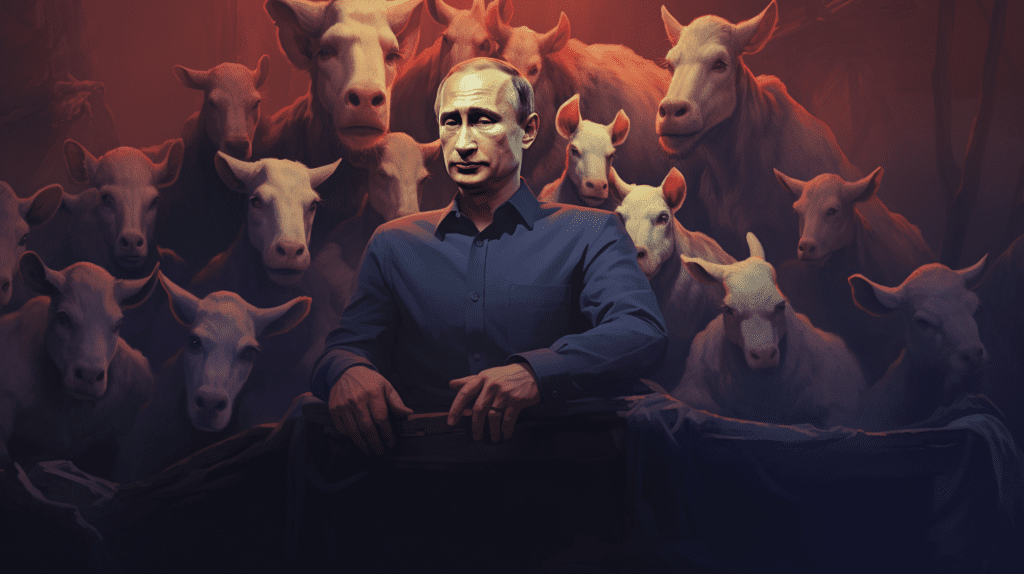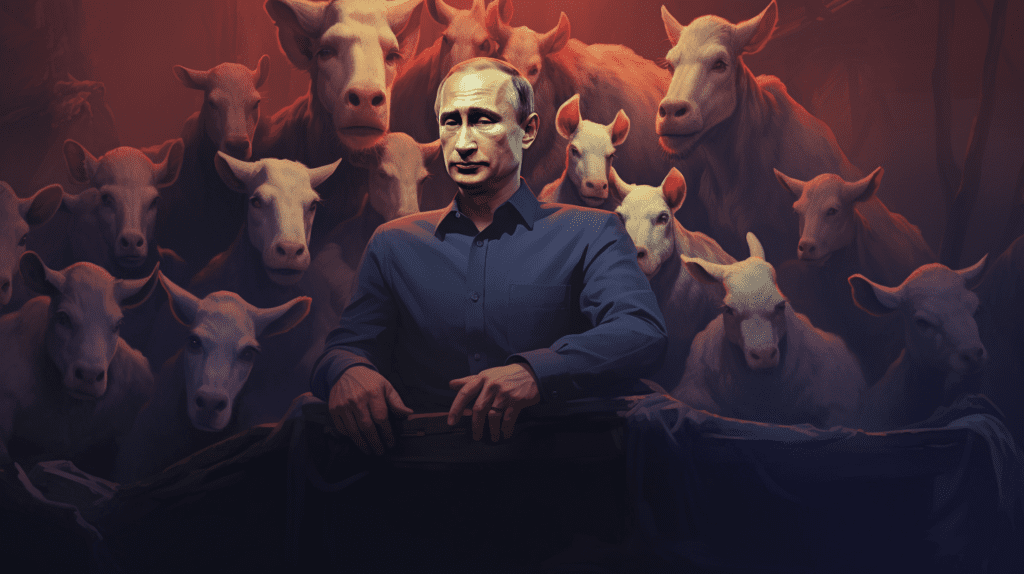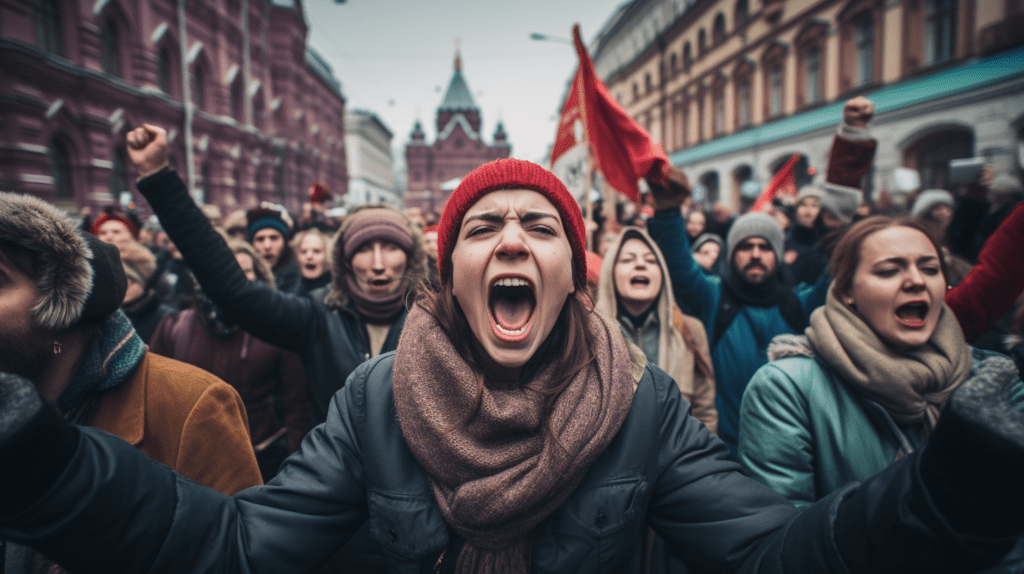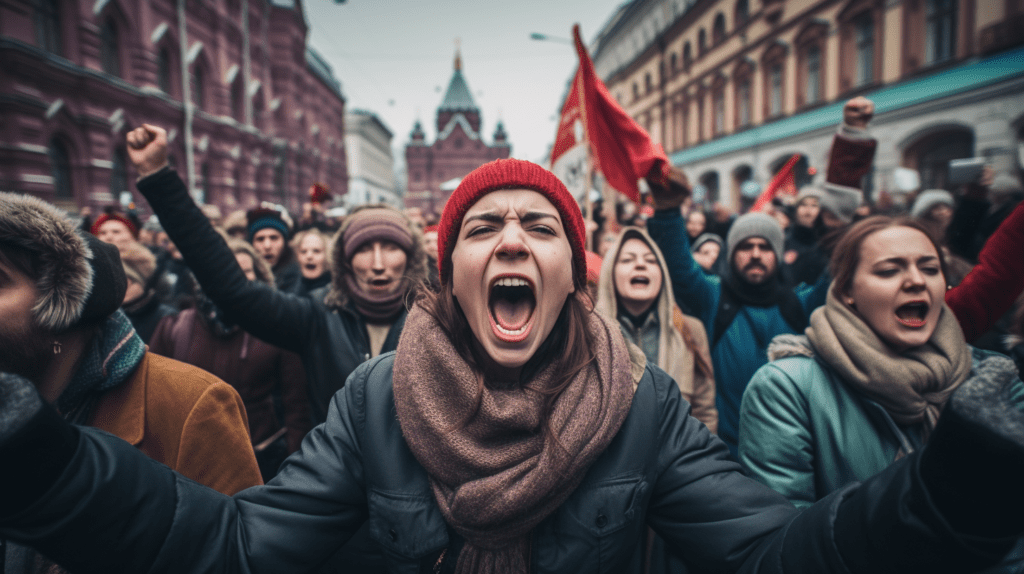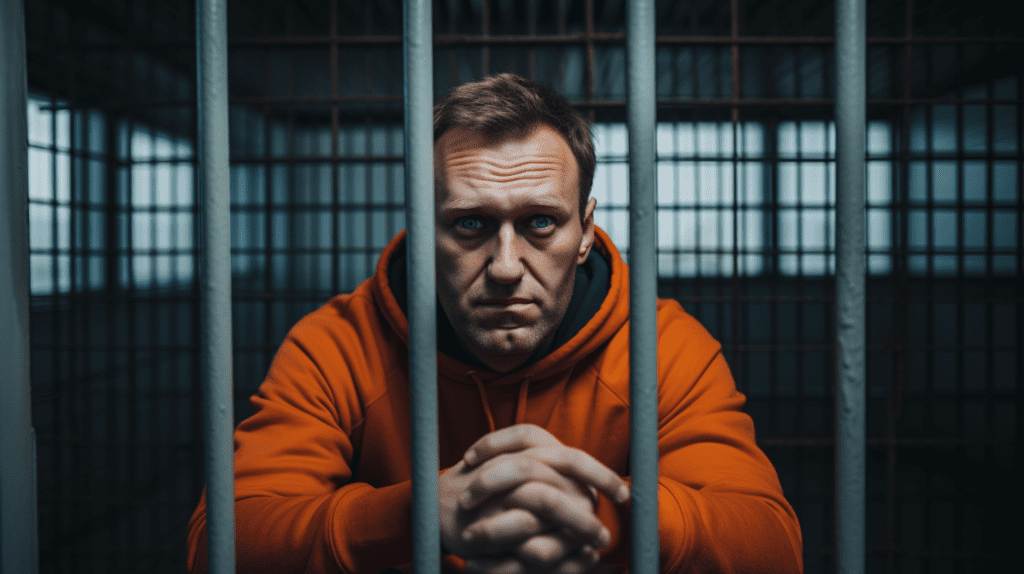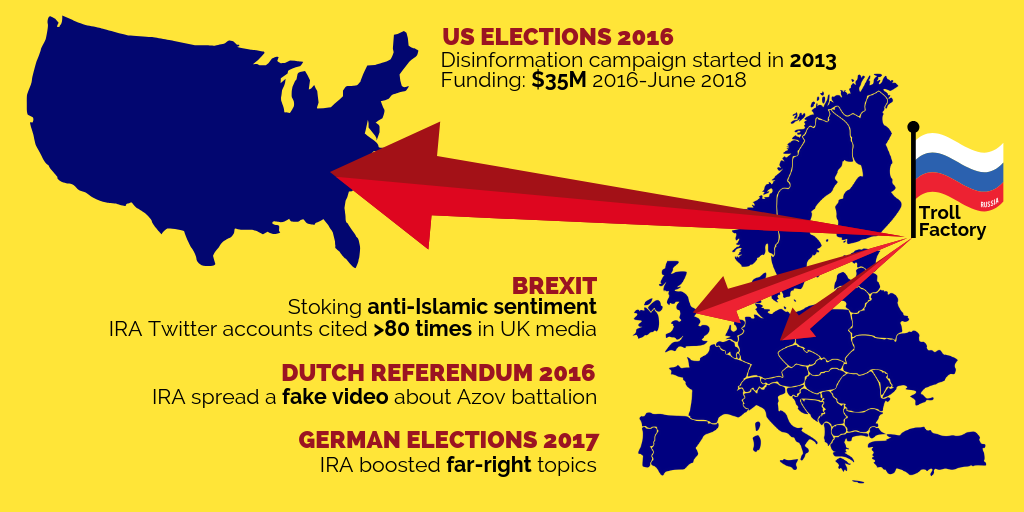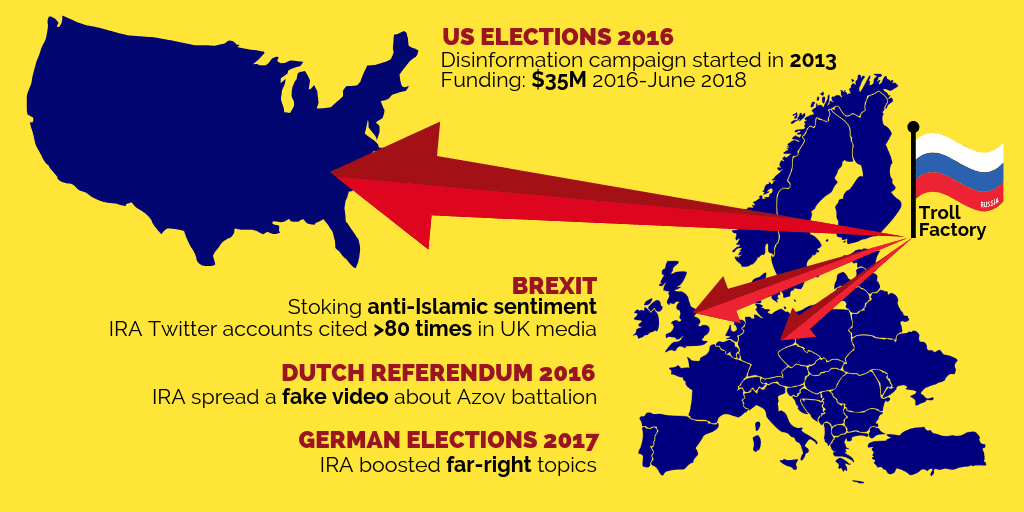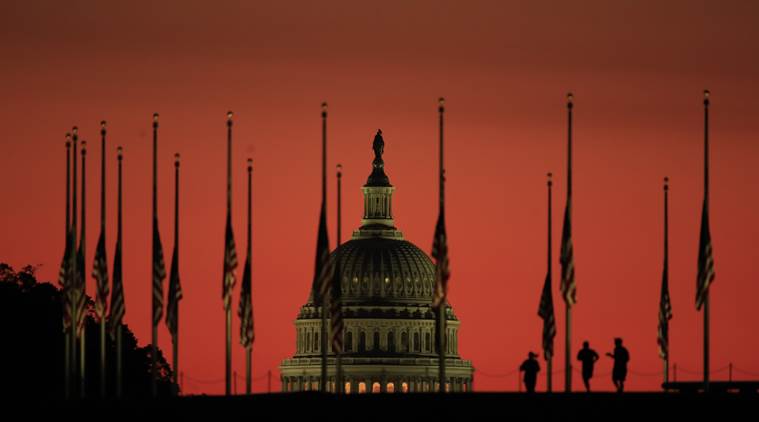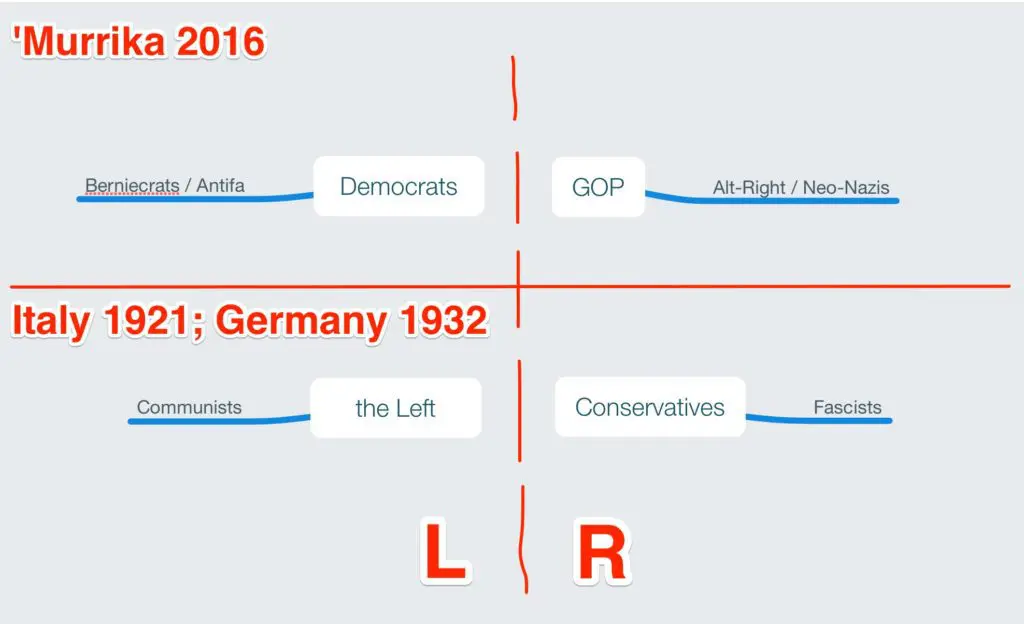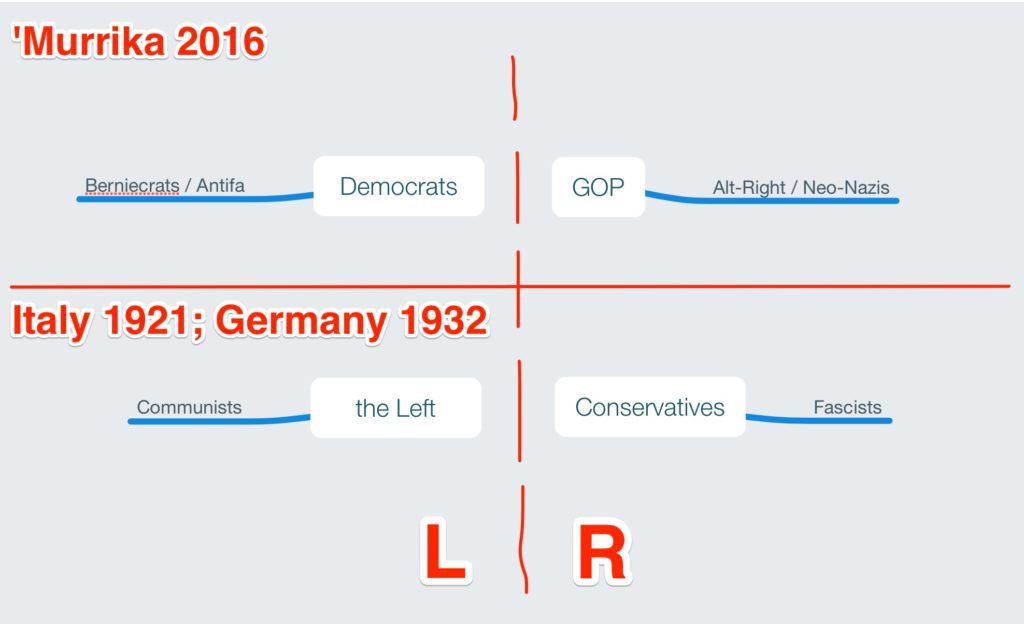The war in Ukraine is less “surprising” to some who’ve seen it raging since 2014. Although it escalated greatly in 2022, the Ukraine timeline dates back all the way to the collapse of the Soviet Union in 1991.
To understand the backstory — which is now inextricably intertwined with our own presidential history given the impeachment of Donald Trump over his phone calls with Zelensky to the Republican Party‘s current-day support of the aims of Vladimir Putin — we have to go back to a time when no one was stronger on anti-Russian policy than GOP darling Ronald Reagan.
- 1991 — Ukraine declares independence and becomes an independent entity after the fall of the Soviet Union
- 1994 — Ukraine agrees to give up its nuclear arsenal in exchange for a protection agreement with Russia, United States, Britain, and Ireland (Budapest Memorandum)
- 2004 — Viktor Yanukovich “wins” election under dubious circumstances and is deposed for a do over election, which he loses to Viktor Yuschenko (Orange Revolution)
- 2006 — Viktor Yanukovych begins working directly with Paul Manafort, in an effort to boost his image after his electoral loss. Manafort was known for his work helping the “Torturers’ Lobby” of brutal dictators around the world in the 1980s, with Roger Stone (another infamous dirty trickster best known for his role as a fixer for Richard Nixon).
- 2007 — Yanukovych’s Party of Regions does well in the Ukranian parliamentary elections, gaining a large number of seats credited to Manafort’s strategic advice about Western-style campaigning.
- 2010 — Yanukovych is elected President of Ukraine, again largely crediting Manafort’s strategies for his comeback.
- Nov 2013 — Having promised a more European-style government in order to win the presidency in 2010, Yanukovych turned on his word and initiated more pro-Russian policies than the Ukranians had signed up for. Yanukovych is now beset by enormous public protests against the corruption of his regime, and his unilateral decision to abandon an association agreement with the EU in favor of a trade agreement with Russia (Maidan Revolution / Revolution of Dignity)
- Feb 2014 — After a harrowing 93 days barricaded inside Kyiv’s Maidan Square, activists are victorious; Yanukovich is deposed and flees to Russia
- Mar 2014 — Russian forces invade and annex the region of Crimea within Ukraine
- Apr 2014 — Russian forces invade the Donetsk and Luhansk regions in eastern Ukraine, escalating a war that continues to this day and had already killed more than 14,000 people by the time the 2022 large scale invasion began
- Apr 2014 — Hunter Biden and business partner Devon Archer join the board of Burisma
- May 2014 — Candy magnate Petro Poroshenko succeeds Yanukovych as president of Ukraine
- Feb 10, 2015 — Viktor Shokin takes office as the prosecutor general of Ukraine, tasked with getting a handle on rampant corruption
- Oct 8, 2015 — US Assistant Secretary of State Victoria Nuland reiterates strong concerns that Shokin is failing to prosecute obvious corruption in Ukraine, and that efforts at anti-corruption must be stepped up there
- Dec 8, 2015 — Then VP and point person on Ukraine Joe Biden gave a speech to the Ukrainian parliament, urging them to step up their efforts to pursue anti-corruption reforms to help strengthen their young democracy
- Winter 2015-6 — Biden is talking to Poroshenko about how Shokin is slow-walking their anti-corruption efforts
- Feb 16, 2016 — Viktor Shokin resigns as Prosecutor General of Ukraine
- May 12, 2016 — Yuriy Lutsenko is appointed as the new Prosecutor General, despite having no law degree or legal experience. At first he takes a hard line against Burisma.
- Aug 14, 2016 — “Black ledger” payments to Paul Manafort from Viktor Yanukovych go public
- May 10, 2017 — Trump hosts Russian Foreign Minister Sergei Lavrov and Ambassador Sergey Kislyak in the Oval Office, the day after he has fired James Comey as the Director of the FBI over “the Russian thing” — only a photographer for Russian news agency Tass is allowed to cover the meeting
- June 2017 — The NotPetya malware emerges and causes extensive damage — especially in Ukraine. It is widely fingerprinted as a Russian state-sponsored attack.
- October 30, 2017 — Paul Manafort is indicted by Special Counsel Robert Mueller for money laundering, acting as a foreign agent, making false statements, and conspiracy against the United States, as part of the ongoing investigation into Russian interference in the 2016 US presidential election.
- Apr 30, 2018 — At a Trump dinner in his DC hotel, Lev Parnas and Igor Fruman tell Trump they think Ukraine Ambassador Yovanovitch isn’t loyal enough to him
- May-June 2018 — Lev Parnas pressures US Congressman Pete Sessions to pressure Trump to fire Yovanovitch in exchange for campaign funding; he and Fruman are later arrested for this scheme and other federal charges of illegal foreign funding of election campaigns
- Summer 2018 — Trump reportedly frets a potential Biden run for the presidency
- August 2018 — Lev Parnas’s company, which is named (I kid you not) “Fraud Guarantee,” hires Rudy Giuliani‘s firm for $500,000 to continue working on getting Ambassador Yovanovitch fired for doing her job pursuing corruption in Ukraine.
- Sept 2018 — Congress passes and Trump signs a spending bill for the Department of Defense, including $250 million in military aid to Ukraine under the Ukraine Security Assistance Initiative (USAI)
- Late 2018 — Lev Parnas arranges for Giuliani to meet with both Shokin and Lutsenko on multiple occasions; Devin Nunes also secretly meets with Shokin in Vienna.
- Dec 6, 2018 — Trump pressures Parnas and Fruman to pressure the Ukrainian government to open an investigation into the Bidens
- Late Feb, 2019 — Parnas and Fruman pressure then-President Poroshenko to open an investigation into the Bidens, in exchange for a state visit at the White House that would help his challenging re-election campaign against the popular young upstart comedian Volodymyr Zelenskyy
- Spring 2019 — A “working group” of Giuliani, Parnas, Fruman, conservative Hill reporter John Solomon, Joseph diGenova, Victoria Toensing, and Devin Nunes’s top aide Harvey meet regularly to work on the quid pro quo project
- March 2019 — Prosecutor General Lutsenko opens 2 investigations: 1 into alleged Ukrainian involvement in the 2016 US election (a Russian conspiracy theory) and a 2nd into Hunter Biden’s involvement with Burisma (he will later retract many of his allegations).
- March 24, 2019 — Don Jr. tweets criticism of Ambassador Yovanovitch
- March 28, 2019 — Giuliani hands off a smear campaign packet of disinformation cobbled together on Yovanovitch, intended for Secretary of State Mike Pompeo
- April 24, 2019 — Trump orders Marie Yovanovitch recalled from her diplomatic mission in Ukraine, after Giuliani and other allies reported she was undermining and obstructing their efforts to extort Ukrainian president Volodomyr Zelensky to claim he was investigating the Bidens for corruption.
- July 25, 2019 — On a phone call with Zelensky, Trump pressures him to investigate Biden in exchange for the release of funds to keep the Russians at bay in Crimea. He disparages Yovanovitch on the call, referring to her as “bad news.”
- Oct 3, 2019 — Ambassador to Ukraine Marie Yovanovitch is unsummarily fired by Donald Trump after recently having been invited to continue her post for several more years
- Dec 18, 2019 — The House of Representatives votes to impeach Donald Trump for abuse of power and obstruction of Congress, the first of two times Trump will be impeached.
- Feb 5, 2020 — The Republican-controlled Senate voted along party lines, having called no witnesses, to acquit Donald Trump of both impeachment charges.
- Feb 2022 — Russian forces begin a large scale land invasion of Ukraine including massive attacks on civilian cities.
- Feb 2024 — Donald Trump holds up a bipartisan immigration deal in Congress that would allow military aide funds to Ukraine to be released. Running for a second term as US President, Trump continues to break with 80 years of the post-WWII international order — in refusing to support NATO, the alliance widely regarded as keeping the peace in Europe broadly, as well as in supporting the regime of Vladimir Putin in Russia’s war of aggression against Ukraine.
